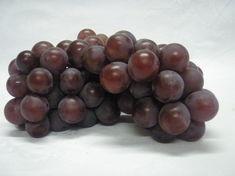
Brazilian producers are to launch a new grape to the world at Fruit Logistica as they look to replicate the success the fruit has had in the domestic market.
The new Red Niagara grape, which will provide one of the highlight’s of the Brazilian Fruit stand, is still relatively unknown on the international market, with its sister, the White Niagara, enjoying success in recent years.
IBRAF, the Brazilian Fruit Institute, and supported by the Brazilian Trade and Investment Promotion Agency, Apex-Brasil, will support producers, exporters, associations and government bodies at the Berlin trade fair.
The production of table grapes destined for export is concentrated in Brazil's North East, in the Vale do São Francisco region, where the semi-arid climate and tropical latitude allow for year-round production.
The region is responsible for 96 per cent of Brazilian grape exports, comprising a broad offer of seeded and seedless varieties, and the harvests are targeted at the international off-seasons - April-May and October-November.
The South East also produces grapes, albeit these are mainly intended for the domestic market, while the South is mainly concerned with supplying the wine and juice industries.
Although the Niagara grape is produced throughout the year in various areas spread throughout São Paulo state, harvests peak between December and February.
Benassi sales director Luci Benassi said: “As its flesh is soft, sweet and very juicy, the Niagara has been exceptionally successful, taking over the national market over the course of a mere decade.
“And Benassi is confident that this national phenomenon will be repeated worldwide”.
IBRAF executive manager Valeska de Oliveira said: “The Brazilian Fruit stand will feature companies ranging from those with plenty of experience of the international market to those seeking to export for the first time. What they all have in common is their intent to establish permanent and sustainable positions in the international market, instead of focusing on one-off contracts. Brazil is focused on increasing its share of the international market and we hope that 2010 will see an even more positive scenario for Brazilian fruit exports.”



